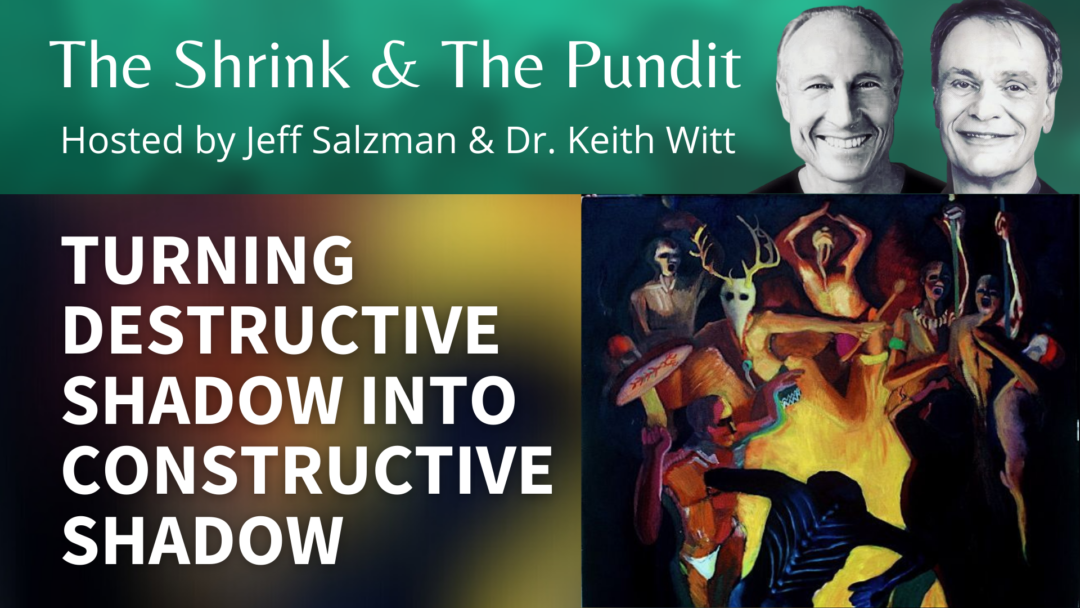Repressed anger, hidden fears, unwanted impulses and compulsions…our psyches contain parts of ourselves that are concealed but which can deeply affect our lives. “We’re bigger than we know, literally,” says Jeff. “There are parts of ourselves that we’re not aware of but that are still there, and often they’re running the show. At a certain stage of development our practice becomes the process of shining a light on the areas that are in the dark.”
The discovery of the unconscious mind was a major achievement of human psychology, and has revealed powerful new therapeutic approaches to human health and happiness. The basic premise is simple: if dissociating from parts of ourselves keeps us from developing, then integrating those parts will accelerate our development. The extent to which we acknowledge our shadow is the extent to which we allow our development into whole people with rich relationships.
Primal drives and instincts don’t stay quietly locked away in the basement until we invite them up for tea. And the more complex we become, the more elaborate our defenses. But in the same way we gauge the wind by looking at the leaves on the trees or the waves on the water, we can see the effects of our shadows. It’s a pretty good bet that you’re operating from shadow when your emotional response is way out of proportion to the circumstances at hand. You may see yourself get angry, defensive or fearful for no good reason. You catch yourself lying and you’re not sure why, or you find yourself in the same difficult situation or unhealthy relationship over and over.
Excerpt | Transforming shadow is a tantric practice in relationship
Dr. Carl Jung famously said “until you make the unconscious conscious, it will direct your life and you will call it fate.” If we’re not aware of the forces in our psyche — physiological, psychological, emotional—then shadow is organizing us.
Dr. Keith tells us that the only difference between a destructive shadow and a constructive shadow is our willingness to engage with it. Not a pleasant task in the best of circumstances, let alone when we’re in the defensive states that arise when our shadows are activated. We have to trust others to help us—our partners, friends, support groups, and of course, our therapists. It takes courage to be vulnerable and open enough to confront these lost parts of ourselves. And since the world is our mirror, it’s always going to happen in relationship. That is the difficulty, and it’s also what saves us.
The shadow is a moral problem that challenges the whole ego-personality, for no one can become conscious of the shadow without considerable moral effort. To become conscious of it involves recognizing the dark aspects of the personality as present and real. This act is the essential condition for any kind of self-knowledge. ~C.G. Jung
We can learn to look within, to identify destructive shadow and then metabolize it and transform it. “When you’re dealing with destructive shadow, you have to feel it and accept it and simultaneously bring embodied moral discernment to bear on it,” says Dr. Keith. “That combination of acceptance and moral discernment is sometimes paradoxical, they’re often reciprocal inhibitors, and so part of development is getting better at bringing those forces together and reconciling them with the drives and impulses that arise.”
Those drives and instincts are expressed differently at the various altitudes of development, as is the embodied moral discernment that can transmute them. As usual, it helps to have an integral view — which is what you’ll get in this conversation from Dr. Keith Witt and Jeff Salzman: AKA, The Shrink and The Pundit.
Podcast: Download
Subscribe: Google Podcasts | RSS






